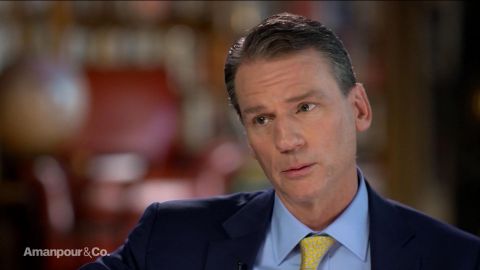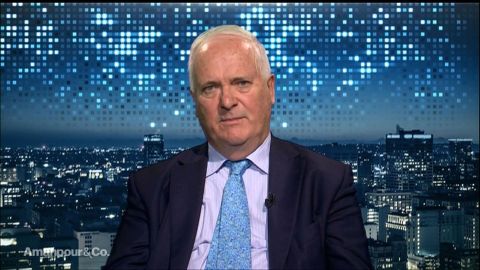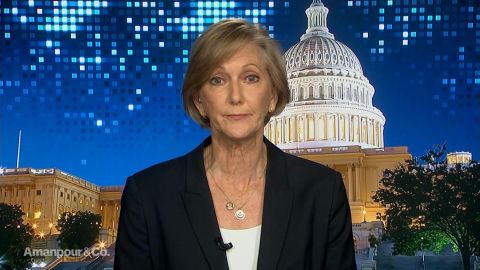Read Transcript EXPAND
CHRISTIANE AMANPOUR: Where do you think there could be some kind of movement?
JOHN BRUTON, FORMER IRISH PRIME MINISTER: I think the big area where there has to be movement is in regard to customs. Boris Johnson was a member of the May government, which agreed in December of 2017 to a negotiating path with the European Union, which said there would be no customs controls on the border in Ireland and it’s a Good Friday agreement, which is about convergence flow and divergence would be respected. Now, the proposals that he came forward with a week ago, Boris Johnson came forward with a week ago, don’t comply with that really in respect particularly of the customs controls. There is a real problem. There will be tariffs if Britain leaves the E.U. There will be tariffs to be imposed on imports from the U.K. into the European Union. If Britain leaves the E.U., there will be different standards of goods applying in the U.K. to those that apply in the European Union, and Boris Johnson has said that he intends to deliberately, in fact, to diverge from E.U. standards, presumably to gain some sort of competitive advantage. But if that happens, the E.U. will have to defend its interests by imposing tariffs, of the arrangements that Boris Johnson proposed for the collection of those tariffs was so sloppy as to be not enforceable. I don’t believe the European Union will be willing to accept that value-added tax would be collected properly under the arrangements he was proposing or that the tariffs would be collected either.
AMANPOUR: John Bruton, one of the things that I think much of the world can understand about Ireland being the major sticking point is because of that, as we’ve been talking, the border idea, the border issue that has been resolved since 1997’s Good Friday Agreement, which you had done so much work in the lead-up for that before it was actually signed by your successor with Prime Minister Blair. The Good Friday Agreement that ended the war, essentially, between Republicans, IRA, and the British government. What is the threat? We’re already seeing dissident IRA having done all sorts of opportunistic violence over the last several months, and what is your fear in terms of peace on your island, if this doesn’t work out?
BRUTON: It’s important to say that the Good Friday Agreement was built on a foundation, and that foundation consisted of Britain and Ireland being in the single European markets and there being a common customs code, which was agreed in 1992. 1992, the Good Friday Agreement, 1993, the single market, 1998, the good — 1998 we had the Peace Agreement. But without the customs code being in place and Britain being in a single market, there would never have been a Good Friday Agreement.
About This Episode EXPAND
Nancy McEldowney speaks to Christiane Amanpour about the situation in Northern Syria and the Trump impeachment probe. John Bruton joins the program to discuss Brexit negotiations. Alastair MacTaggart sits down with Hari Sreenivasan and explains how he led a ballot initiative in California that resulted in the toughest digital privacy law in the United States.
LEARN MORE


